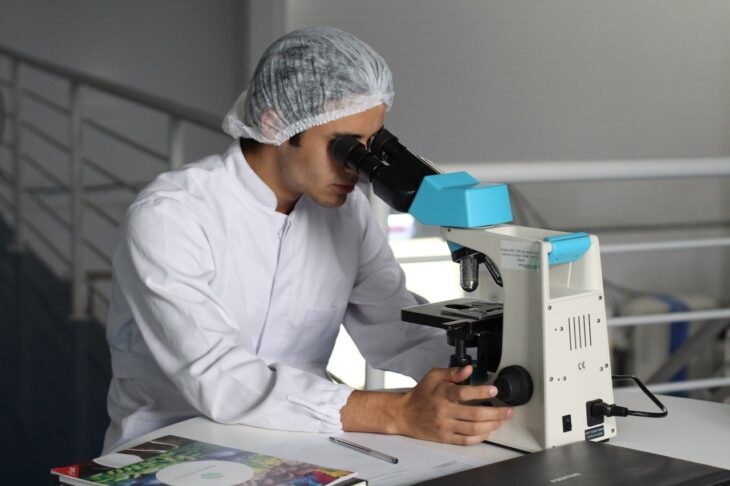
In the wake of the US Supreme Court’s 2022 decision to overturn abortion rights law previously protected based on the Roe v Wade case of 1973 many concerns arise daily. For instance, how will the ruling impact treatment for infertility, especially IVF? Obviously, the overturning of Roe carries many implications that affect healthcare and reproductive rights far beyond abortion. Here we take a look at just how this ruling affects IVF.
Conventional IVF
People undergoing fertility treatment experience a range of procedures, depending on their course of treatment. For those undergoing IVF treatment typically begins with the introduction of medication designed to increase the hormones involved in ovulation. The medication helps the female partner produce as many eggs as possible. Once the eggs mature, the doctor collects them, and the lab fertilizes them using the male partner’s sperm.
For couples embarking on an IVF journey, the aim is for more than a few viable embryos, or that at least enough viable embryos develop for a successful pregnancy. Sometimes you and your partner have embryos leftover which you may preserve by freezing them for future use.
How The Overturning of Roe Affects IVF
So how does the Roe overturn impact your IVF journey? The concern regarding Roe involves those leftover embryos. It’s possible the courts may tweak the laws even further regarding the decision of when life begins.
According to the infertility organization RESOLVE, there is a very real possibility that one of the issues stemming from taking the abortion ban to the extreme is the idea that life begins at fertilization. If that happens the “personhood” bill affords the same rights to embryos not implanted as to those implanted. If the laws recognize embryos as possessing personhood the option to freeze or dispose of them may not be available to you.
Hypothetically, speaking a determination like that could lead to an “all or nothing” scenario in which the doctor must transfer all embryos to the uterus. Of course, this carries serious threats to the mother as well as the embryos they carry.
Of course, this type of law would also pose some dire ramifications for preimplantation genetic testing as well. PGT tests embryos prior to implantation for genetic and chromosomal abnormalities. Identifying these abnormalities prevents implantation of a defective embryo which may result in miscarriage, stillbirth, or birth defects. Currently, patients have the option of disposing of embryos which are not genetically viable. Roe’s overturning puts that option in jeopardy.
Alternatives to Conventional IVF
Navigating your way through infertility and treatment is emotional and often fraught with unexpected twists and turns. This latest possible twist is definitely cause for concern but not a reason for you to deny your dream of having a family. If you’re concerned about the effect of Roe’s overturn on your fertility treatment options you may look into some alternatives to traditional IVF.
Natural IVF: Natural Cycle IVF doesn’t involve the use of ovary-stimulating hormones so the yield of eggs is much more natural-one or two eggs per cycle. This process results in only one or two embryos so deciding what to do with any leftover embryos isn’t an issue.
Minimal Stimulation IVF: Minimal stimulation IVF is similar to natural cycle IVF in that the procedure allows for natural ovulation but assists the ovaries in maturing the egg(s) by using low-dose hormones. Again, your body releases only one or sometimes two eggs so dealing with excess embryos is not an issue.
Intrauterine Insemination (IUI): This procedure typically suggested for those couples suffering male factor infertility, single women or same sex female couples or those diagnosed with unexplained infertility, involves injecting sperm directly into the uterus at the time of ovulation. Your doctor often combines IUI with certain fertility medications so your odds for successful conception increase.
Another possible way around any of the fallout from Roe’s overturn? Freeze your eggs. Go through the same pre-implantation process for collecting the most eggs you can and freeze those eggs for future fertilization and implantation. You may opt for fertilization at any time following extraction and instead of freezing your embryos, which may pose an issue at any time, you opt to freeze your eggs.
Uncertain Times
Understandably many individuals and couples going through infertility remain confused and unsure of where they stand. The courts handed over basic determination of when life begins to the states and the states must enforce the laws on which they decide. We believe California remains somewhat more amenable to IVF for now. But if you’re unsure know that there are options available.
Our Patients Always Come First
Much is still unclear as states invoke their rights insofar as this ruling but at LA IVF our patients always come first. California, at this time, doesn’t restrict any part of IVF or any other fertility treatment. The team of professional care providers in our clinic remain on top of any developments regarding changes to our treatment plans in view of the current status. For your concerns and more information please reach out to LA IVF today.










